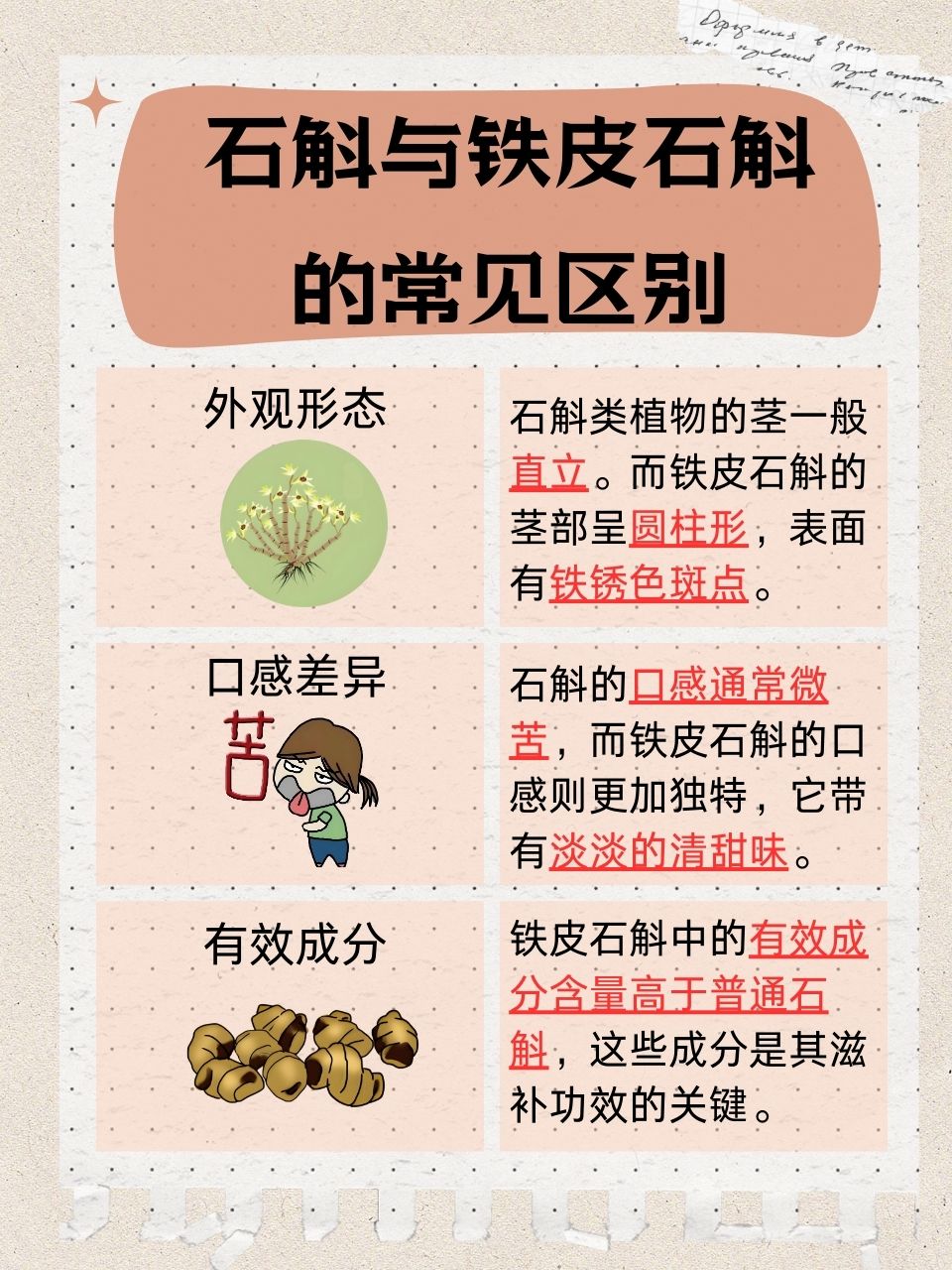What is the difference between Dendrobium officinale and Dendrobium officinale? The answer is revealed
🌼On the road to health and nourishment, have you often heard the names Dendrobium and Dendrobium officinale? They look similar, but there are actually many differences. So, what's the difference?
🌷Common differences between Dendrobium officinale and Dendrobium officinale:
🔔Appearance: There are many types of Dendrobium, with different stem shapes, generally more slender, with colors ranging from yellow-green to gold. Yellow, etc., some varieties of dendrobium stems also have obvious vertical lines and internodes. The stems of Dendrobium officinale are relatively thick and short, the skin color is mostly iron-green, the texture is relatively solid, the cross-section is flat after breaking, and there are obvious fiber tube bundles.
🔔Differences in taste: There are also differences in taste. Dendrobium generally tastes lighter, with a slightly sweet and grassy smell. Dendrobium officinale, on the other hand, has a mellow taste, sticky texture, sweet taste, and long aftertaste. Its unique taste also makes it very popular in the market.
🔔Active ingredients: The content of active ingredients such as dendrobium polysaccharide and dendrobine in Dendrobium officinale is usually higher than that of ordinary dendrobium. These active ingredients are the key to its nourishing effect. The higher content also makes Dendrobium officinale relatively superior in terms of medicinal and health care value, and the price is often more expensive than ordinary Dendrobium.
🌸However, Dendrobium officinale and Dendrobium officinale also have some taboo groups:
🎈Patients with colds and fever: Patients with colds and fever should not take it. At this time, the body's righteousness is fighting against external evils, so take nourishing products Dendrobium may cause evil spirits to stay in the body, aggravate the condition, and be detrimental to the recovery of colds.
🎈Pregnant and lactating women: Pregnant and lactating women should avoid taking it because there is currently no clear research conclusion on its safety to fetuses and infants. In order to ensure the health of mothers and infants, it is best not to take it. edible.
🎈Those with allergies: People with allergies should use it with caution. If you are allergic to dendrobium, you may experience allergic reactions such as rash, itching, shortness of breath, etc., which may even be life-threatening in severe cases.
☘In short, although Dendrobium officinale and Dendrobium officinale are both good choices for health care, there are many differences between them, and you need to be careful when taking them. Understand your physical condition and needs. There are some precautions about Dendrobium and Dendrobium in the picture. You can click to view them!


